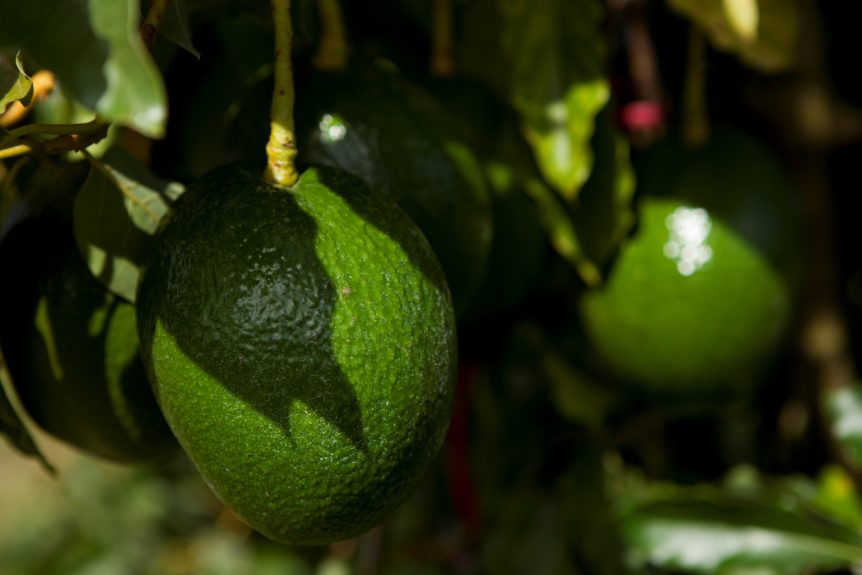
Scientists with the University of Florida Institute of Food and Agricultural Sciences (UF/IFAS) have secured a $5 million grant from the U.S. Department of Agriculture (USDA) National Institute of Food and Agriculture to combat the lethal Laurel wilt disease and the redbay ambrosia beetles responsible for it.
The research aims to improve control and mitigation practices for avocado production in Florida. The grant will also support the testing of new varieties for their tolerance to cold and disease. This initiative is poised to extend avocado cultivation beyond Miami-Dade County, fostering growth and sustainability beyond the Sunshine State’s avocado production industry.
“Laurel wilt is the most devastating disease to avocado trees in the world,” said Jeffrey Rollins, Ph.D., principal investigator and a professor of plant pathology at the UF Institute of Food and Agricultural Sciences, who’s leading the research team. “Trees infested with this pathogen die within four to eight weeks.”
The pathogen is transmitted to trees by four to five ambrosia beetle species and through root grafts of adjacent avocado trees.
Virtual Seminar
As part of the grant objective, UF/IFAS will host a 90-minute virtual seminar on Thursday, Dec. 19, “Introduction to a New Grant: Sustaining Avocado Production in the Face of the Lethal Laurel wilt Disease,” beginning at 3 p.m. The free informational workshop is open to growers, researchers and interested investors who want to learn more about the grant’s scope and how it will shape the future of avocado farming in Florida. To participate, attendees must register in advance at this Zoom link.
Avocado varieties grown in Florida are touted for their nutritional benefits. With more than 50 varieties, each is rich in protein, potassium, iron and vitamins.
“Growers are interested in increasing commercial acreage in Central Florida, thanks to a variety of conditions, one being warmer climates shifting to the north. Currently, avocadoes can be found growing as far north as Polk County,” said Jonathan Crane, Ph.D., a co-principal investigator and a tropical fruit crop specialist at UF/IFAS Tropical Research and Education Center. The grant will support research to expand the market.
Laurel Wilt Disease
However, the South Florida avocado industry has been severely impacted by Laurel wilt with production reduced by about 50%, he said.
Laurel wilt was first detected in Florida’s commercial avocado production area of Homestead in 2012. Initially, the disease was spread by one species of the redbay ambrosia beetle, said Crane.
“The pathogen has now spread to 10 ambrosia beetle species five of which we know can transmit the disease,” he said. “That completely complicates everything. There is more at stake because the problem stretches beyond Florida into other avocado-producing states, posing significant risks.”
The disease has destroyed more than 350,000 avocado trees in Florida, said Rollins.
This significant funding amount will support a trans-disciplinary research team of 12 scientists across the state, leading efforts for the next five years that are aimed at sustaining the Florida avocado industry and expanding avocado production both in South Florida and into Central Florida to accommodate the increased demand.
The new grant will enable UF/IFAS researchers to explore additional innovative pest-management techniques, plant breeding, modeling and genetic solutions to mitigate the impact of this disease.
“The industry is battling the Laurel wilt disease with proven pruning practices to open the groves to increased light and wind, which suppress the ambrosia beetle activity,” said Rollins. “Some growers are injecting fungicide to reduce tree losses, and many growers are replanting lost avocado trees.”
Research Goal
The research team’s goal is to provide growers, investors and the public with the latest proven tools for disease detection, diagnosis and management. Through workshops, community events and bilingual resources, they want to empower stakeholders with science-based solutions while ensuring their concerns are addressed. By integrating research findings into practical strategies, these efforts will help protect the avocado industry and preserve this iconic fruit industry for future generations.










